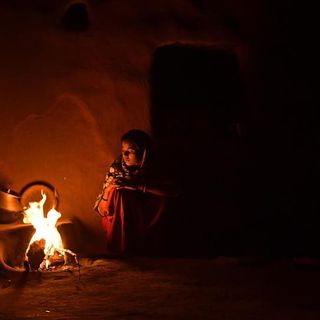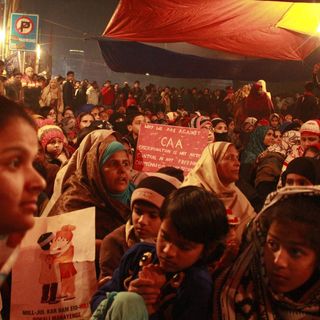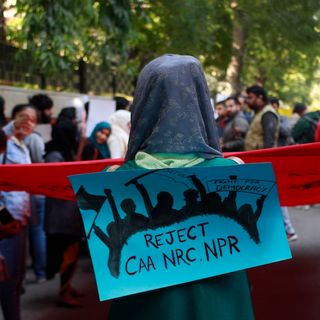A 19-year-old Dalit woman, who had gone missing on December 31, was found hanging from a tree in Modasa, Gujarat, on Sunday, January 5. Her family alleges she was gang-raped and murdered; that the police refused to file an FIR when the family first approached them — then told the family the woman was safe, had married someone in the community, only to turn around and say the case fell outside their jurisdiction. When the woman’s body was found, the police waited two days to file an FIR, despite the family providing the name of the man who abducted the woman. It’s now been five days since the woman’s body was discovered, and even with CCTV footage confirming the abduction and the names of the four accused, the police have made no arrests.
Significantly, all the elements of this heinous case — the rape, the murder, the Dalit victim, and the police’s apathy and institutional fatigue — are mirrored at a large scale in the latest National Crime Records Bureau report that released a few days ago.
For instance, there was a 31% increase in cases of rapists murdering their victims in 2018 as compared to 2017. From 223 cases of rape-murders in 2017, the count increased to 291 in 2018. “It is difficult to say why this may be happening. It is possible that the inclusion of the death penalty for punishment against rape encourages the perpetrator to kill the victim. But we would need a few years more to have robust data to reach that conclusion with confidence,” an officer with the Bureau of Police Research and Development told The Indian Express. This hypothesis echoes the main argument against the government’s 2013 rush to make rape laws more stringent by including capital punishment. At the time, activists and lawyers had repeatedly argued: if committing the crime of rape can lead to capital punishment when murder doesn’t, then rapists will be encouraged to kill their victims, so as to destroy the evidence of the crime with the harsher penalty.
This week, a Delhi court finally handed death warrants to the accused in the 2012 Delhi rape case and celebrations abounded, but the recent Gujarat case and the NCRB report are reasons to re-think our jubilance. The Gujarat police’s apathy to even begin an investigation reflects the country’s broader, abysmally low conviction rate for rape cases — 27.2% — in the report. Let that sink in: Less than one-third of men who have raped women face consequences in India.
Related on The Swaddle:
Report: French Police Failed to Stop 36 Men From Murdering Their Female Partners
“The low conviction rate shows that perpetrators of sexual violence enjoy a high degree of impunity, including being freed of charges,” Vani Subramanian, from the women empowerment group Saheli, told The Economic Times. According to the NCRB report, out of the 1,56,327 rape cases on trial in 2018, the trial was completed only in 17,313 cases. In these cases, twice as many men walked free after being accused of rape than were convicted. And even after this, a majority of these rape cases are still pending in the courts, with no certain end-date. This further adds to the impunity men feel when they commit these crimes.
Let’s not forget — all of this is after a rape case even reaches the courts. The NCRB report also shows that almost half of all police complaints made in India between 2016 and 2018 were distress calls over the phone, but less than 1% of these complaints got registered as FIRs. Contrast this with the fact that 60% of all written complaints were converted to FIRs. Arguably, more women than men rely on oral complaints to the police than written ones, given how few women have access to the Internet in order to send an email and/or freedom of movement to visit a post or SHO office. In this case, most of the reports of rape are not even making it into the police system, let alone the courts.
And then, there’s all the other stuff we don’t like to think about when we’re either too happy or too angry about the outcome of a rape case that has caught our eye — also mirrored in the (flaws of the) NCRB report: most survivors of rape, especially those from marginalized communities like Scheduled Castes — don’t even go to the police; according to India’s National Family Health Survey, 80% of women who have experienced sexual violence never even tell anyone about it.




